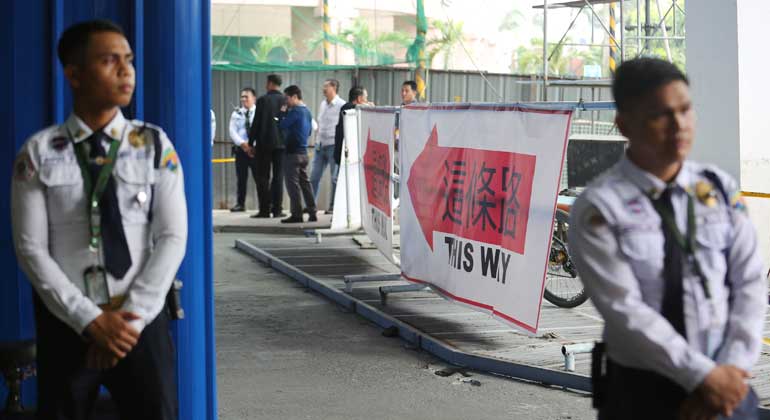
THE Bureau of Internal Revenue (BIR) will still conduct an audit of Philippine Offshore Gaming Operators (POGOs) that are leaving the country to check their tax compliance and collect any back taxes, Finance Secretary Carlos G. Dominguez III said.
“Before a Philippine registered entity can close its business, it is required to get a clearance from the BIR. This triggers an audit where the BIR can determine if they have paid the correct taxes,” Mr. Dominguez told reporters via Viber Wednesday when asked about the exit of some POGO companies.
The Finance chief said more POGOs are exiting the country due to weak demand and the Chinese government’s crackdown against offshore gambling.
Mr. Dominguez said a building owner in Makati City reported that some POGOs and service providers have canceled their lease contracts due to lack of business.
“The issue is not so much on POGO revenues but more on the impact to real estate values and businesses. Obviously the income tax and VAT (value-added tax) collection from this sector will be affected,” he added.
A report by real estate consultancy firm Leechiu Property Consultants (LPC) showed demand for office space dropped 74% in the first six months of 2020 as POGOs began their exodus amid the pandemic.
Meanwhile, Philippine Amusement and Gaming Corp. (PAGCOR) Chairperson and Chief Executive Officer Andrea D. Domingo said in a text message there are only 29 POGOs allowed to currently operate, which generate an average of P50 million in gross gaming revenues (GGR) a month.
“Last year, P300 million ang monthly GGR [and] PAGCOR collected 2% from this as government share,” she added.
As of Sept. 8, PAGCOR data showed there were only 55 approved POGO licensees in the country, down from the 60 businesses registered previously. Only 203 service providers are also authorized to operate.
The government prohibited casino and offshore gambling operations when the strict lockdown started in mid-March. Operations of POGOs and their service providers were allowed to resume in early May, provided they observe safety protocols and submit a tax clearance.
The BIR requires POGOs to settle their tax arrears and pay the 5% franchise tax before they can be issued a tax clearance, but the industry refused to comply.
Mr. Dominguez said they are still estimating how much taxes they can collect from the POGO industry this year, after Senator Franklin M. Drilon asked if the collections will increase since the basis of 5% franchise tax was changed under the Bayanihan to Recover as One Act (Bayanihan II).
Tax collections from the POGO industry was one of the funding sources of the P165-billion Bayanihan II. Mr. Drilon said the law revised the basis of the 5% franchise tax to gross bets amid alleged cheating in the computations of net winnings.
The BIR collected P6.42 billion in taxes from POGOs last year, surging by 170% from P2.38 billion in 2018. — Beatrice M. Laforga
